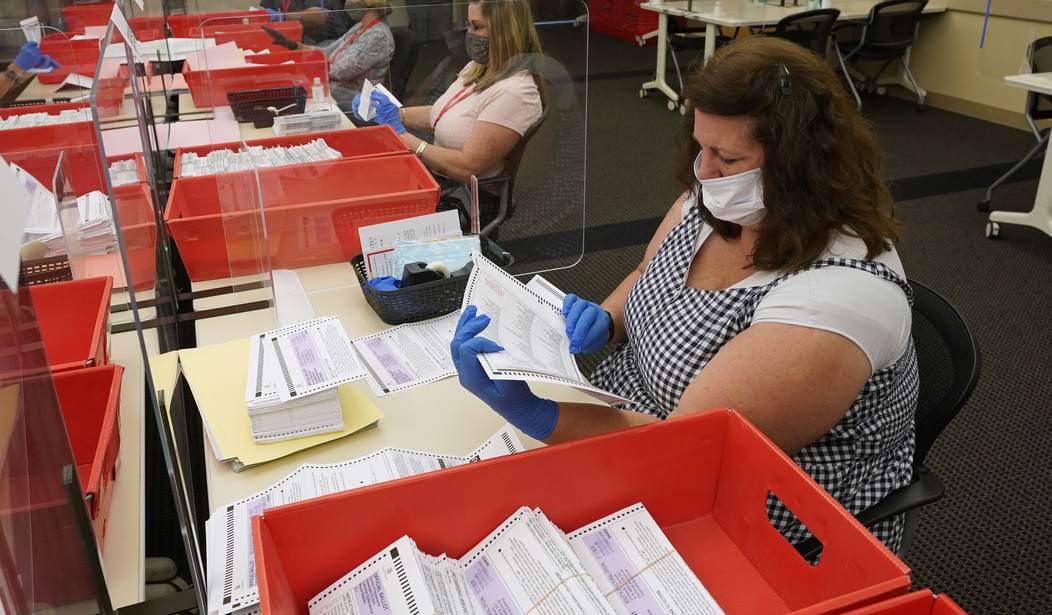Last week, the Pennsylvania state supreme court ruled that any mail-in ballots that did not have a correct date and signature on the envelope they were sent in would not be counted. Since that requirement is specifically listed in the state’s election laws, it seemed like a no-brainer for the most part. But that hasn’t stopped the Pennsylvania ACLU and other liberal groups from filing a lawsuit intended to throw out the ruling and force the ballots to be counted anyway. So is this yet another case of the “voter suppression” that Stacey Abrams likes to go on and on about or just a simple example of following election laws as they are written? It may be too late to impact tomorrow’s election, but the question will eventually have to be settled ahead of the next presidential cycle. (Yahoo News)
Pennsylvania currently requires voters who mail in a ballot to sign and date the outer envelope. On Tuesday, the Supreme Court ruled that any mail-in ballot with an incorrect date or no date written at all on the return envelope would not be counted.
Friday night, several groups in the state, represented by the American Civil Liberties Union, filed suit in federal court. Their goal is to have these votes count, even if they do not have the proper dates written.
Their argument is that votes should not be disqualified over what they call a trivial paperwork error, saying these ballots are otherwise valid.
The ACLU’s argument already seemed rather thin even before the state supreme court handed down its ruling. Calling the lack of a signature or a correct date on the ballot envelope a “trivial paperwork error” opens the door to all manner of other exceptions. What if the return address on the envelope doesn’t match the address of record for the voter? What if the ballot itself has errors on it? Should they all be tossed into the bin and tabulated anyway?
And these objections really aren’t all that “trivial” to begin with. Each state has its own rules for early voting and mail-in voting, most of which were massively expanded during the pandemic and are now being made permanent wherever Democrats can get away with doing so. Those rules include the dates when it is acceptable to send in or drop off a ballot.
Since there are no election officials present to determine when a ballot is dropped into a mailbox or a ballot drop box, the date on the envelope is the only way (such as it is) to determine if the ballot was “cast” in a legal fashion. The lack of a signature is also highly problematic. When you go to vote in person, you are always asked to sign in when they check your name off. Perhaps the lack of a signature on an envelope was an oversight, but it still suggests that the process was not properly completed.
Of course, there is one foolproof way to get around all of these questions and complications. Do you know how you avoid this problem entirely? You go to your polling place on election day, sign in, fill out your ballot and deposit it yourself. No fuss, no muss. No questions need to be asked. And you at least know that your ballot made it into the mix and didn’t get mysteriously “lost” along the way.
But that’s apparently far too simple and rooted in common sense for some people. We’re left to wonder why the ACLU and these other groups are so fired up and determined to see questionable and potentially spoiled or even fraudulently crafted ballots counted. Or perhaps I’m just too cynical by nature.








Join the conversation as a VIP Member